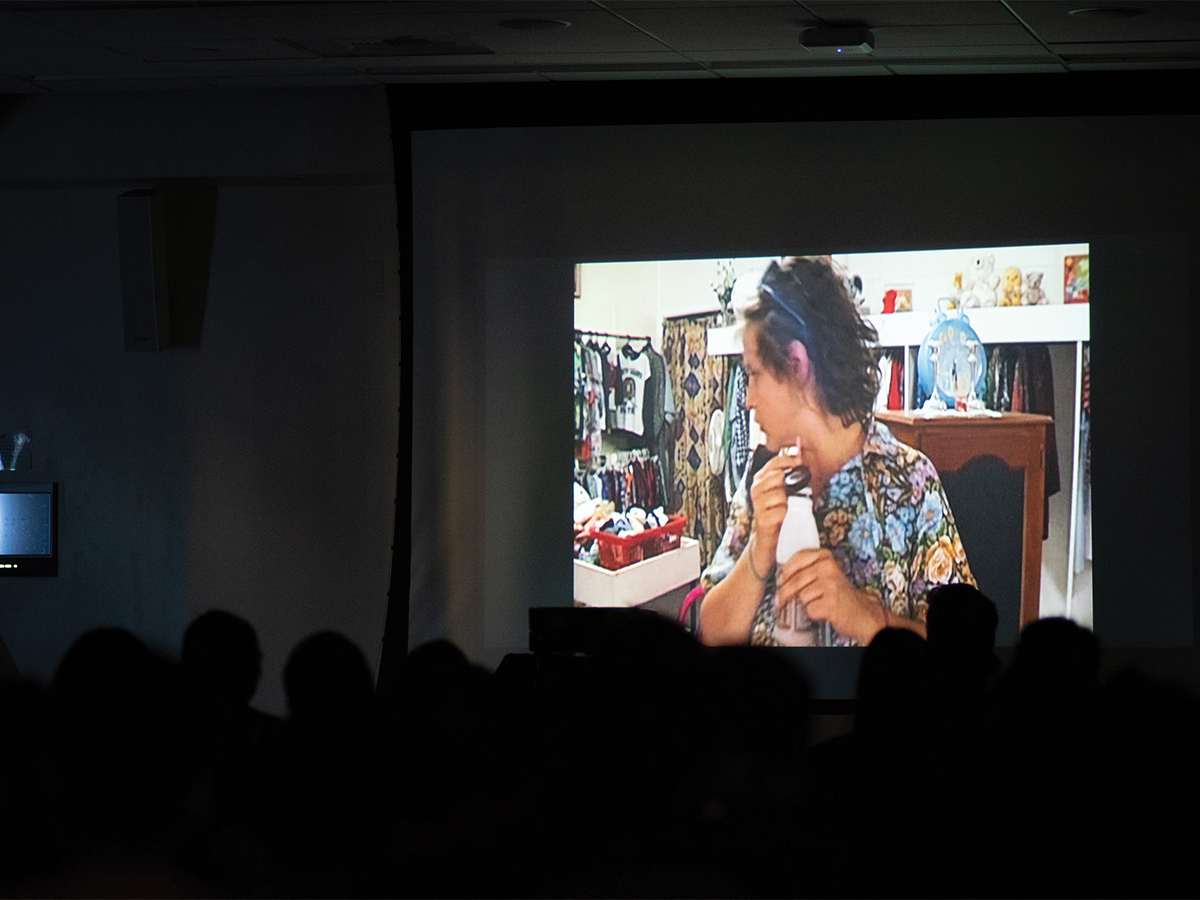
Last Wednesday from 2 p.m. to 4 p.m. at the HUB 355, the LGBT Resource center hosted a screening for a documentary produced by Phoebe Hart called “Orchids: My Intersex Adventure.” The film revolves around her life being intersex, which for Hart means that she was born with an extra Y chromosome.
Hart describes her early childhood as being happy until she was diagnosed at the age of five. Her parents decided that it would be best to keep her condition a secret from her and everyone else as well. As a result, Hart grew up watching her friends go through puberty unable to understand why the experience alluded her.
Hart’s parents waited until Hart was a 12th grader to reveal to her the details about her condition. She was born with Androgen Insensitivity Syndrome (AIS), meaning Hart has male reproductive parts. Unknown to Hart at the time, her younger sister Bonnie was also diagnosed with AIS. But since their parents kept everything a secret, both sisters struggled alone.
Throughout the entirety of the film, Hart goes around Australia visiting other people who are also intersex. Each one of them has faced their own struggles with their identities. For example, Hart met with a women named Aleyshia who was born with the same condition as Hart but the doctors decided to take out her uterus and have her be raised as a boy. Later on in life, Aleyshia wanted to be a woman and decided to stop taking hormones that would help her develop as a man.
At the end of the film, Hart comes to accept her condition and decides she can still live life to the fullest. We see her story come to a happy ending when she and her partner are able to adopt a baby girl and finally start a family.
Afterwards, there was a brief discussion moderated by UCR Gender and Sexuality Studies lecturer Taylor Riley. A recurring topic was the idea whether or not doctors should be allowed to decide the gender for an intersex baby. Along with that there were ideas of including gender studies courses as a requirement for earning a medical degree so that future doctors could have a better understanding of how gender affects lives.
“I think that these babies should be given the opportunity to decide for themselves what they want to be and to have these doctors decide for them at such an early age seems unfair,” commented first-year education major Esmeralda Rizo from the audience.
This film was selected by Riley because she had seen it in a feminist film festival in New Delhi in 2012 and found it went deeper into a topic that she was only able to briefly cover in her classes.
“I want my students to learn how common intersex conditions are and how they really do affect all of us in terms of how we are all affected by issues of sex and gender in our everyday lives,” she stated.
For students interested in learning more, the LGBT Resource center holds weekly Tuesday Talks where they address different aspects about gender and sexuality. Week 9’s Tuesday Talk was held in Costo Hall 245 from 5 p.m. to 6 p.m., and featured an open discussion for all people to come talk about sex and sexuality.







